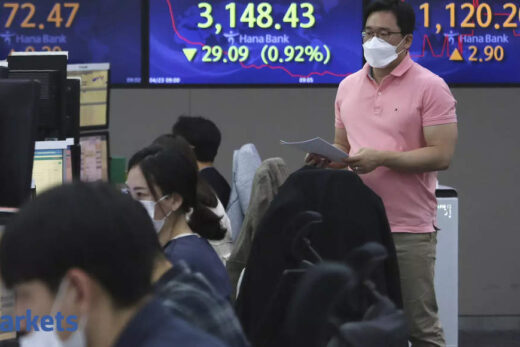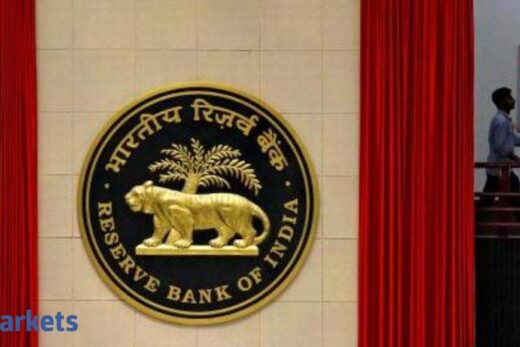The Fed surprised markets on Wednesday when it said that policymakers are forecasting two interest rate hikes in 2023.
The statement sent two-year and five-year yields, which are the most sensitive to rate changes, higher. Long-dated yields, however, have since dropped, led by declines in 30-year bond yields.
Analysts say that many investors are unwinding trades that were betting on higher inflation as the US central bank indicates it will not let price pressures surge as high as some were fearing.
“It does seem as though the market has now shifted its view that the Fed’s going to let inflation run wild, to the Fed’s basically going to kill inflation in the cradle,” said Gennadiy Goldberg, an interest rate strategist at TD Securities in New York, adding that “the truth is probably somewhere in the middle.”
“They are trying to reinforce their control of the narrative. I don’t think they want the narrative to be that the Fed is behind the curve on inflation,” Goldberg said.
Yields jumped on Friday after St. Louis Federal Reserve bank President James Bullard said he thinks rate increases will begin next year as inflation rises faster than expected.
“We were expecting a good year, a good reopening, but this is a bigger year than we were expecting, more inflation than we were expecting, and I think it’s natural that we’ve tilted a little bit more hawkish here to contain inflationary pressures,” Bullard said.
Two-year yields jumped to 0.284%, the highest since April 2020. Five-year yields increased to 0.962%, the highest since April 5.
Bullard’s comments “are confirmation on the shift at the Fed, which is now more concerned about upside inflationary pressures,” Citigroup analysts Calvin Tse and Kiranpal Singh said in a report on Friday.
The yield curve continued to flatten after Bullard’s comments.
The curve between five-year and 30-year bonds has seen the largest move, flattening to 111 basis points, the smallest yield gap since September. It has flattened from 140 basis points before the Fed statement.
Analysts say the move is being exaggerated by investors unwinding crowded trades betting on curve steepening.
“We think it’s possible long-end steepeners were being used as a positive carry way of positioning for higher yields, especially with the expected Fed liftoff date nearly two years away, and the unwinds of those positions added flattening pressure,” analysts at JPMorgan said in a report on Thursday.
The yield curve between two-year and 10-year notes flattened to 122 basis points on Friday, the flattest since February.
Benchmark 10-year notes were last at 1.485%.
JPMorgan analysts are maintaining a short recommendation on 10-year notes, adding that they think the first rate hike will not be until the second half of 2023 and that they “expect policy will remain accommodative for some time following liftoff.”
The fed funds futures market is pricing for rate hikes to begin in February 2023.
The cost of borrowing Treasuries in the overnight repurchase agreement market (repo) was at 6 basis points on Friday. It has risen since the Fed on Wednesday raised the interest rate it pays banks on reserves by five basis points to 0.15%, and the rate it pays on overnight reverse repurchase agreements to 0.05% from zero.



